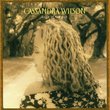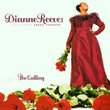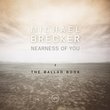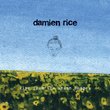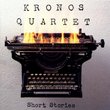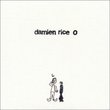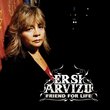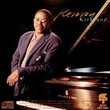| All Artists: Fred Hersch Title: Leaves of Grass Members Wishing: 2 Total Copies: 0 Label: Palmetto Records Release Date: 2/22/2005 Genres: Jazz, Pop, Broadway & Vocalists Styles: Modern Postbebop, Bebop, Traditional Vocal Pop Number of Discs: 1 SwapaCD Credits: 1 UPC: 753957210724 |
Search - Fred Hersch :: Leaves of Grass
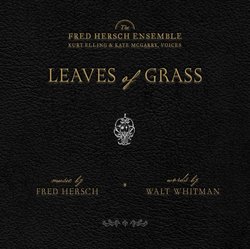 | Fred Hersch Leaves of Grass Genres: Jazz, Pop, Broadway & Vocalists
In 1855, Walt Whitman--arguably the greatest poet the United States ever produced--first published his magnum opus, Leaves of Grass. Now 150 years later, jazz pianist Fred Hersch has skillfully adapted Whitman's work to m... more » |
Larger Image |
CD DetailsSynopsis
Amazon.com In 1855, Walt Whitman--arguably the greatest poet the United States ever produced--first published his magnum opus, Leaves of Grass. Now 150 years later, jazz pianist Fred Hersch has skillfully adapted Whitman's work to music. With a mid-sized ensemble featuring cellist Erik Friedlander, saxophonist Tony Malaby, and vocalists Kate McGarry and Kurt Elling, Hersch, himself a fluid and finessed pianist, takes a back seat to his wonderful arrangements, which encompass martial cadences, hymn-like timbres, Latin rhythms, and ballads. Part VII and Part X of "Song of Myself," the longest work on the disc, range from Charles Mingus, Scenes in the City-style effects to a bluesy, down-home slow drag. Clearly, Elling's majestic baritone voice is the centerpiece of this work. He scats like a bop improviser, narrates like a Shakespearean actor, and sings like an opera star. It is fitting that that the elasticity of jazz truly captures the timeless essence of Whitman's words. --Eugene Holley, Jr. Similarly Requested CDs
|
Member CD ReviewsReviewed on 5/26/2015... Some great piano and other outstanding playing. I didn't much care for the vocal presentation of Walt Whitman.
CD ReviewsSyncopated Poetry S. Michael Bowen | Spokane, WA USA | 02/22/2005 (5 out of 5 stars) "As Fred Hersch points out in his liner notes, since the syncopated rhythms of Walt Whitman's poems led directly to the bebop of the Beat Poets, why not set Leaves of Grass to jazz? Selecting 17 passages from Whitman -- 11 of them from Song of Myself -- Hersch adds four horn players, a cellist and two vocalists to his trio to create "a small-scale oratorio." Kate McGarry caresses the spiritual lyrics in "Song of the Universal"; in "The Mystic Trumpeter," she scats with Ralph Alessi, who in turn contributes a cutesy trill on flugelhorn at the outset of "I Celebrate Myself." On "The Sleepers," Whitman's fantasy of universal brotherhood, Tony Malaby's tenor sax complements Kurt Elling's falsetto, with the rhythm section providing a sleepy, minimalist drone. In "A Child Said, `What Is the Grass?'" Hersch's orchestration soars from tenderness to ecstasy. Most people, perhaps understandably, will browse over jazz-piano-guy-with-nerdy-name-plus-some-poet and walk on by. But if the Venn diagrams of your interests include Whitman and jazz, why not have them intersect? What I assume, you shall assume; we contain multitudes. So does Leaves of Grass." Magical Intoxication Louis Alemayehu | Minneapolis/Saint Paul, MN USA | 04/27/2006 (5 out of 5 stars) "I am a poet who performs with jazz and world musicians. My marriage of words and music is a lot more improvisational than this very composed piece. However, to my ears & heart, this always sounds fresh and moving. Hersch has truely mined the music from this 19th Century ecstatic poetry of the Great Gay Grey Poet, Walt Whitman. The vocals are more suited to an "art song" approach rather than Jazz vocal. Kate McGarry voice is sweet, emotive. Kurt Elling, an impressive jazz singer and lyricist, sings with great passion and interpretive skill here. Hersch has chosen well from the mass of material that Whitman left us. Whitman was a radical, mystic, poet of great power and vision. There may not have been a 20th Century Allen Ginsgerg or many other "American" poets without Whitman. He is the grandfather of many of us. The best of what it means to be "American" despite that fact that this nation was born in violence and the land is still stolen land from coast to coast. Whitman's poetry shows that there is a way to go, a way of being, a way of healing and celebration that transcends the madness. Hersch, Elling, McGarry and the other musicians have created a piece of art in the early 21st Century that is rooted in our past yet lifts up all to see hope and possiblity. This is a senuous, erotic revelation of what real power is. Transcendance through transgression. In this high-tech Dark Age, I cherish Hersch's creation and the CREATION.
I recently read along from Whitman's "Song of Myself" as Kurt Elling sang. I am quite impressed with how Fred edited that lengthy poem into the various songs that appear on this CD. He has chosen some of Walt Whitman's most powerful language. This may have been a labor of love for Hersch, but it also required some sweat and discernment to shape this into an organic whole. My 2 favorite cuts on this CD are: "I am He that Walks" and "The Sleepers", but there is much, much more. Very well done!" |

 Track Listings (20) - Disc #1
Track Listings (20) - Disc #1